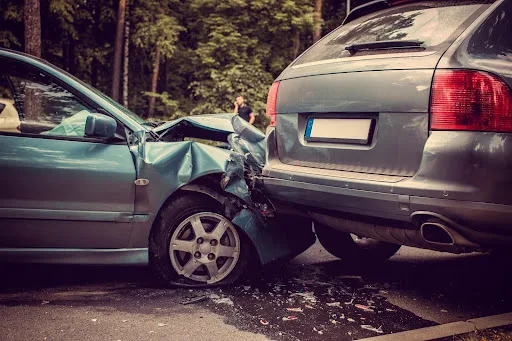Automobile Accidents: Legal Rights and Responsibilities for Drivers
Introduction
Automobile accidents, unfortunately, are a common occurrence and can bring about unexpected legal consequences. For instance, in 2020, 5,250,837 car accidents were registered in the United States. Therefore, every driver should understand their legal rights and responsibilities after such incidents. Knowledge of your legal standing can greatly simplify the aftermath of an accident and help you effectively navigate the legal aspects that follow.
Legal Rights and Responsibilities of Drivers
As drivers, we all have specific legal rights and responsibilities enshrined in traffic laws to ensure safety on the roads. One primary right involves claiming compensation if you become a victim of an accident caused by another driver’s negligence or reckless behavior. This right is rooted in personal injury law, allowing you to seek recompense for any damages sustained in the accident, including medical bills, lost wages, pain and suffering, among others.
Furthermore, drivers have the right to legal representation throughout any proceedings related to the accident to ensure their interests are protected and laws are adhered to effectively.
Conversely, drivers also carry a set of responsibilities, most importantly, the obligation to operate their vehicles safely and prudently, thereby minimizing potential harm to others. This responsibility has been formalized in the U.S under various state traffic laws.
A clear example of this is Vehicle Code 22350 VC, which mandates that no person should drive at a speed that is unsafe for the current conditions. Failure to observe such laws can lead to a driver being deemed negligent and thus liable for any accident that they may cause.
The Role of Insurance in Automobile Accidents
Insurance plays an integral role in automobile accidents. Your insurance company helps cover the costs of repairing your vehicle, medical bills or other expenses as specified under your policy. However, note that your obligations after a crash also include reporting the incident to your insurance provider. The failure to do so might result in denial of your claim. For a more in-depth understanding of auto accident-related laws in your area and a template of an insurance contract, check EasyLawTemplate, a reliable platform offering a variety of legal templates.
What To Do Immediately After An Accident
In the immediate aftermath of an accident, it’s crucial to follow the appropriate steps, not only for safety concerns but also to ensure you are adhering to legal obligations. Here is a brief list of steps to take after an accident:
- Prioritize safety: The first and foremost step is to ensure everyone’s safety. If it’s safe, move out of traffic and onto the side of the road to avoid further incidents.
- Call authorities: Once you are safe and well out of traffic, call the local authorities to report the accident. They will provide immediate assistance and document the incident, which may prove to be vital in any subsequent legal proceedings.
- Exchange information: Exchange necessary details with the other driver(s) involved in the accident. This should include names, phone numbers, license numbers, and insurance details.
- Document the scene: If possible, take photographs of the accident scene, particularly the damage done to vehicles. This could serve as crucial evidence if driver fault becomes contentious.
- Notify insurance provider: Inform your insurance provider about the accident as soon as possible to ensure any claims process starts timely.
Following these steps will not only contribute to managing the situation more effectively but will also help to establish important details that may be required later on.
Protecting Your Legal Rights as a Driver
Ensuring your legal protection starts with taking the necessary steps right from the accident scene. Here’s how you can protect your rights as a driver:
- Document the incident: Detailed and accurate documentation forms the backbone of protecting your legal rights post-accident. Try to record the incident’s particulars, including the date, time, location, and weather conditions. Also, note down the sequence of events leading up to the accident and any noteworthy details observed at the scene.
- Maintain records of expenses: It’s also imperative to maintain records of all costs related to the accident. These may include repair bills, medical expenses, and other out-of-pocket costs like towing fees or rental car costs.
- Seek medical help: It’s vital, irrespective of how minor you perceive your injuries to be, to obtain medical care immediately. This benefits not only your personal health but also carries substantial legal significance.
- Retain legal counsel: Consulting an attorney can be beneficial, regardless of who is at fault. Legal representation could help you navigate through complex legal proceedings and understand your rights. If necessary, they can also guide you in filing lawsuits or help negotiate with insurance companies on your behalf.
- Communicate carefully: It’s critical to choose your words carefully when talking to anyone about the accident, including your own insurance company. Statements can sometimes be misunderstood or misinterpreted and might potentially be used against you.
Conclusion
Being involved in an accident could be overwhelming. However, by understanding your legal rights and responsibilities, you can navigate the ensuing process with greater confidence. Always be aware of your actions, obligations, and the potential repercussions.
Remember, the law is complex and ever-changing. As a responsible driver, staying updated with your rights, responsibilities, and laws specific to your area is the most effective approach towards managing unfortunate events on the road.



